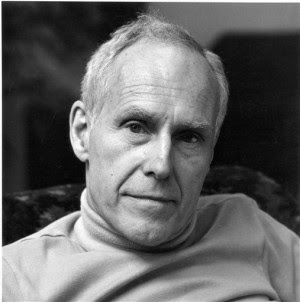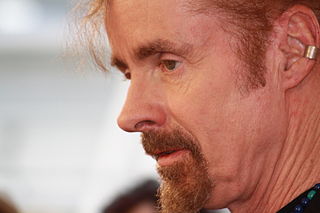A Quote by Michael Craig-Martin
When I was a very young student I loved and admired the work of Sam Beckett, who is famously pessimistic, and whose writing is an extraordinary examination of emptiness. I wanted to be like Beckett. I don't have the same attitude toward the world, I'm naturally optimistic, and so of course I could never be like Beckett. You can't force yourself to become like someone you admire.
Related Quotes
My son is actually named after Beck, the musician. We heard Beck on the radio and thought that was a good nickname for a child. We named our son Beckett so we could call him Beck - we reverse engineered. And then after he was born and I saw the name on the birth certificate I realized Beckett was a really pretentious name, way too literary. Luckily he's grown into it. We nearly named my second son Dashiell. Can you imagine? Beckett and Dashiell. It would have been a disaster of pretentiousness.
At Princeton I wrote my junior paper on Virginia Woolf, and for my senior thesis I wrote on Samuel Beckett. I wrote some about "Between the Acts" and "Mrs. Dalloway'' but mostly about "To the Lighthouse." With Beckett I focused, perversely, on his novels, "Molloy," "Malone Dies," and "The Unnamable." That's when I decided I should never write again.
Artemis: "Right, brothers. Onward. Imagine yourself seated at a cafe in Montmartre." Myles: "In Paris." Artemis: "Yes, Paris. And try as you will, you cannot attract the waiter's attention. What do you do?" Beckett: "Umm...tell Butler to jump-jump-jump on his head?" Myles: "I agree with simple-toon." Artemis: "No! You simply raise one finger and say clearly 'ici, garcon.'" Beckett: "Itchy what?
Samuel Beckett is the person that I read the most of - certainly the person whose books I own the most of. Probably 800 or 900, maybe 1,000 books of just Samuel Beckett. By him, about him, in different languages, etc. etc. Notebooks of his, letters of his that I own, personal letters - not to me, but I bought a bunch of correspondence of his. I love his humor, and I'm always blown away by his syntax and his ideas. So I keep reading those.








































